Apr 24th 2024
Interview: Reconnecting Roots Inside 'Khiem'
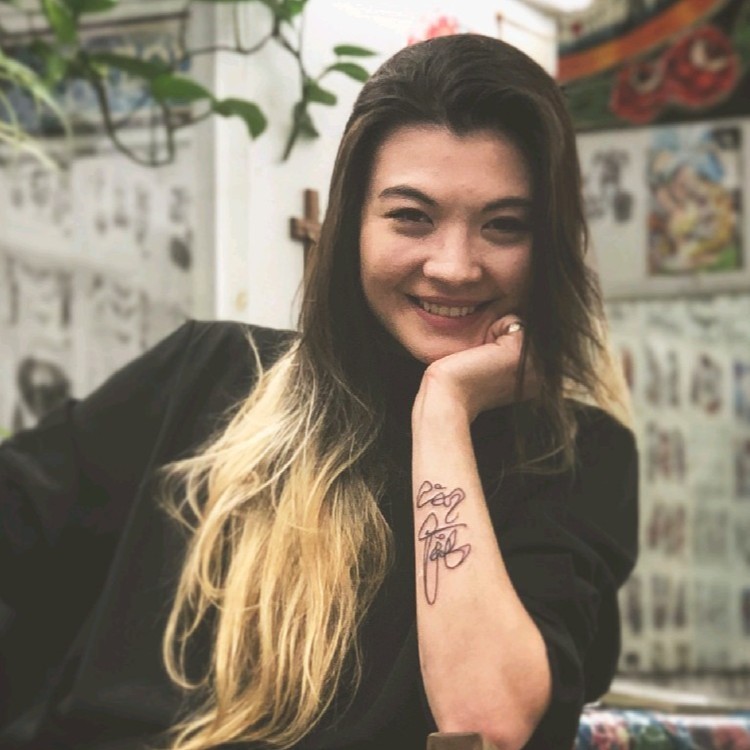
All their lives, Yasmine Morissette Phan and Djibril Morissette Phan have heard of their mother's old country, Vietnam. But it was more a far distant land with lots of folklore more than a real place in their minds.
With Khiem: Our Journey Through The Motherlands, the creative duo delivers a poignant story about the past, the present, and the future. About generations. And about reconnecting with your roots.
In the following interview, writer Yasmine Morissette Phan prepares you for a cultural experience. Keep reading...
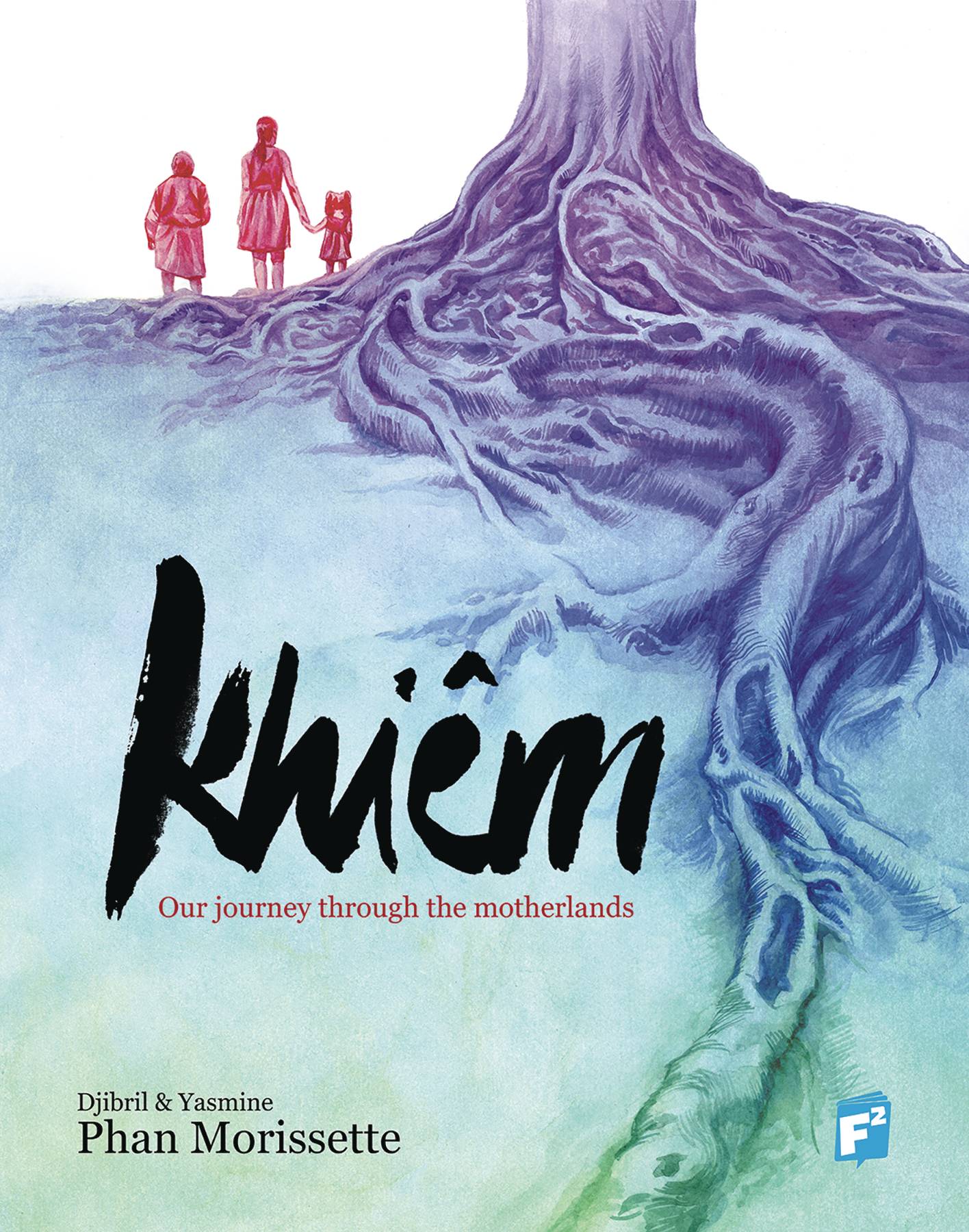
PREVIEWSworld: For the uninitiated, what is Khiêm: Our Journey Through the Motherlands?
Yasmine: Khiêm is an autobiographical graphic novel that tells the story of three generations of women from the same family. Khiêm is the name of our grandmother and it’s also our point of departure in history. From her youth in Vietnam in the mid-1940s to my own contemporary life in Montreal, passing by my mother’s migration in 1980, the book sheds light on the cultural and historical trajectories of our family.
It is a book about family, transmission, refugeehood, cultural mix, and womanhood.
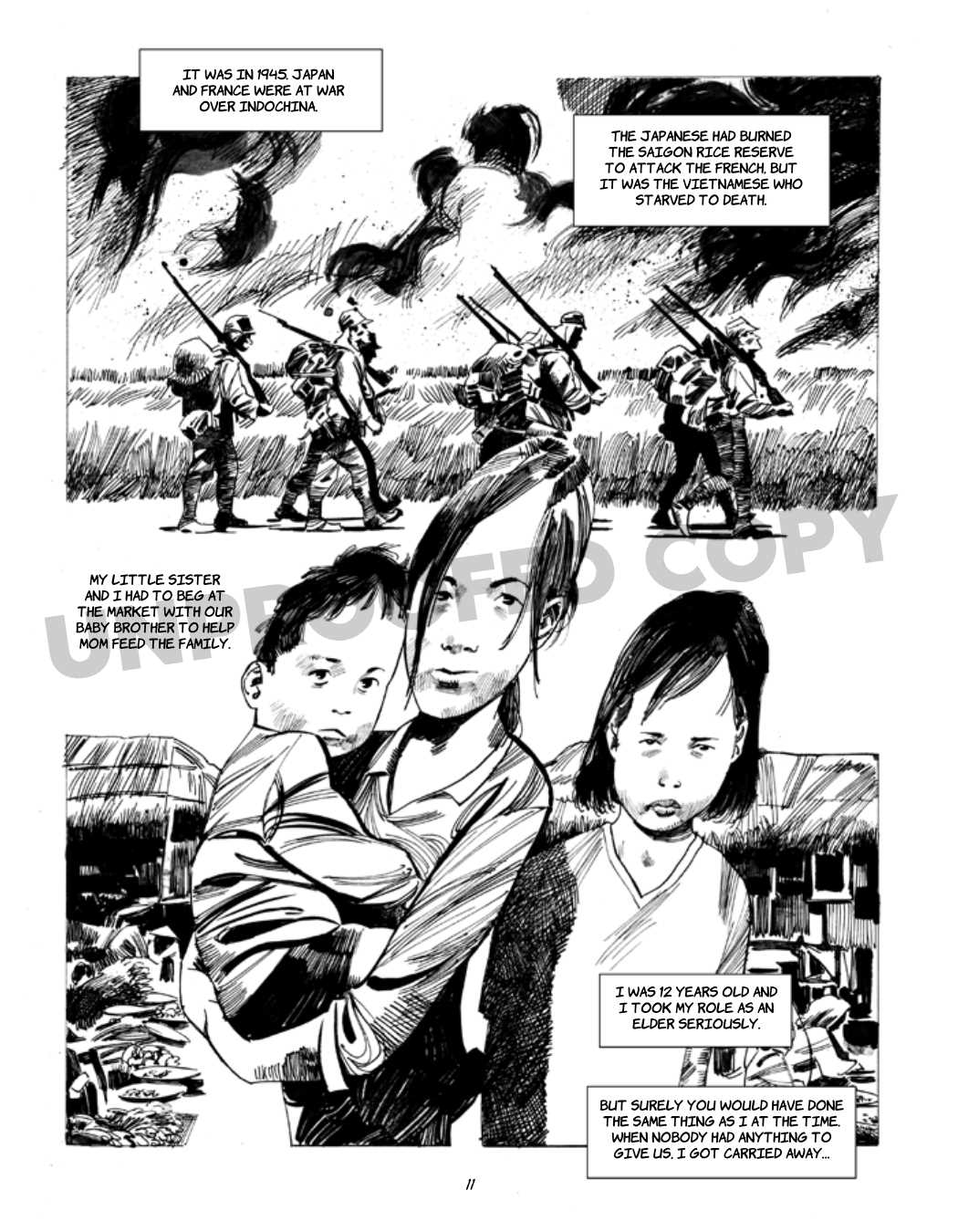
PREVIEWSworld: The full title of your book is Khiêm: Our Journey Through The Motherlands. Can you elaborate on what the journey entailed? Did this involve going back to Viet Nam or is this more of a conceptual journey?
Yasmine: The journey was both spiritual and physical. Our grandmother Khiêm, passed away before my brother and I were born which means we never had the chance to know her. Hence, the first step of this journey through the motherlands was to try and meet her through her writings and through our mother’s memory.
Eventually, our project did bring us back to Vietnam to meet members of the family who still live there. We also went to California, to meet other members of the family who immigrated there.
The book really is a documentation of this journey to our roots. It follows us in our search for answers regarding our identity and our family history.
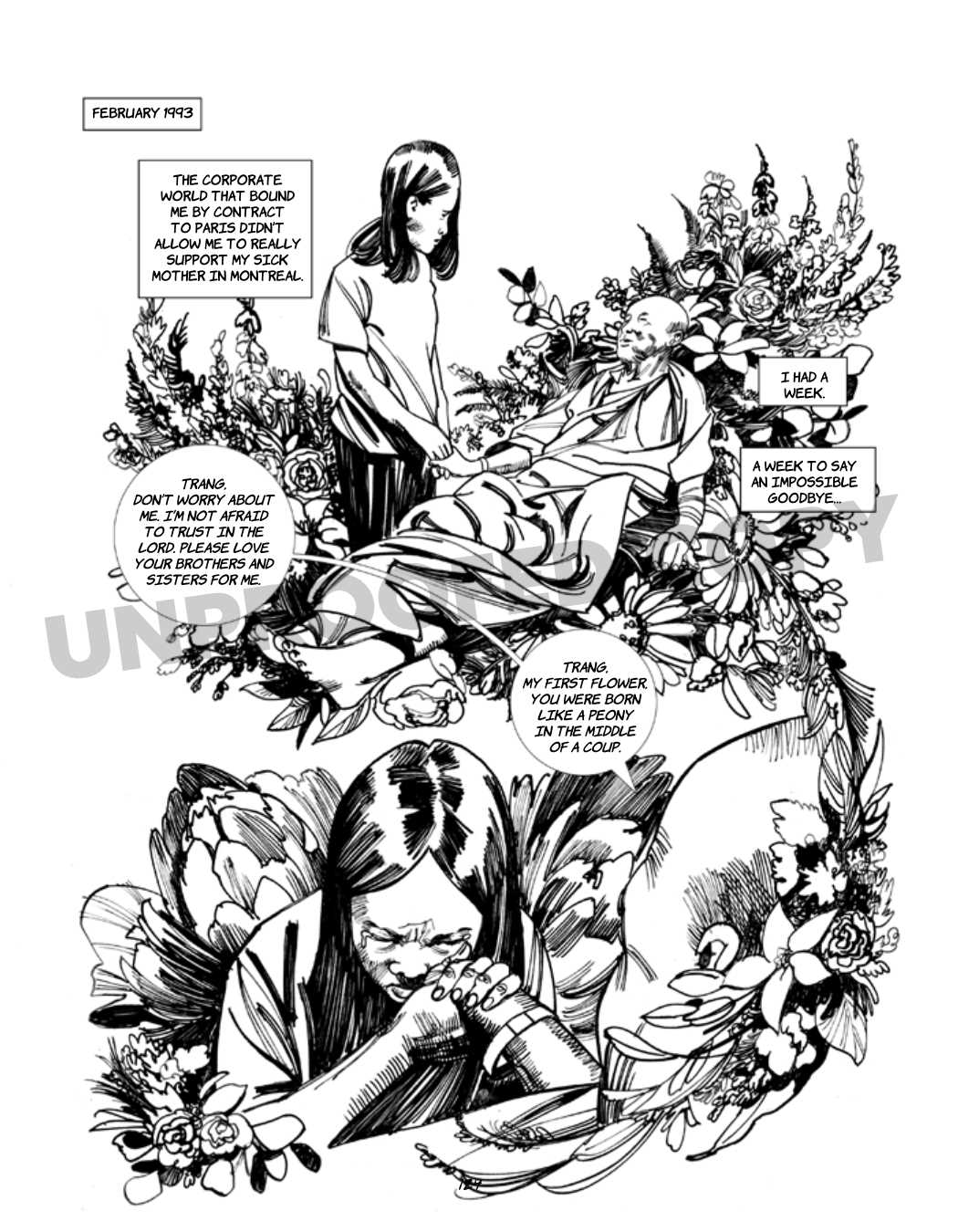
PREVIEWSworld: So, this book is about reconnecting with your roots, but what made you both want to bring it to graphic novel form?
Yasmine: It was a very natural choice for us to opt for a graphic novel since my brother has been working in this industry for years now. On my end, the graphic novel is also a familiar form because not only do I read a lot of them, but I've also studied cinema which gave me practice in script writing.
But overall, my love for this medium stems from the freedom artists have for visual storytelling, attracting different readers and making stories that could feel inaccessible for some people more compelling.
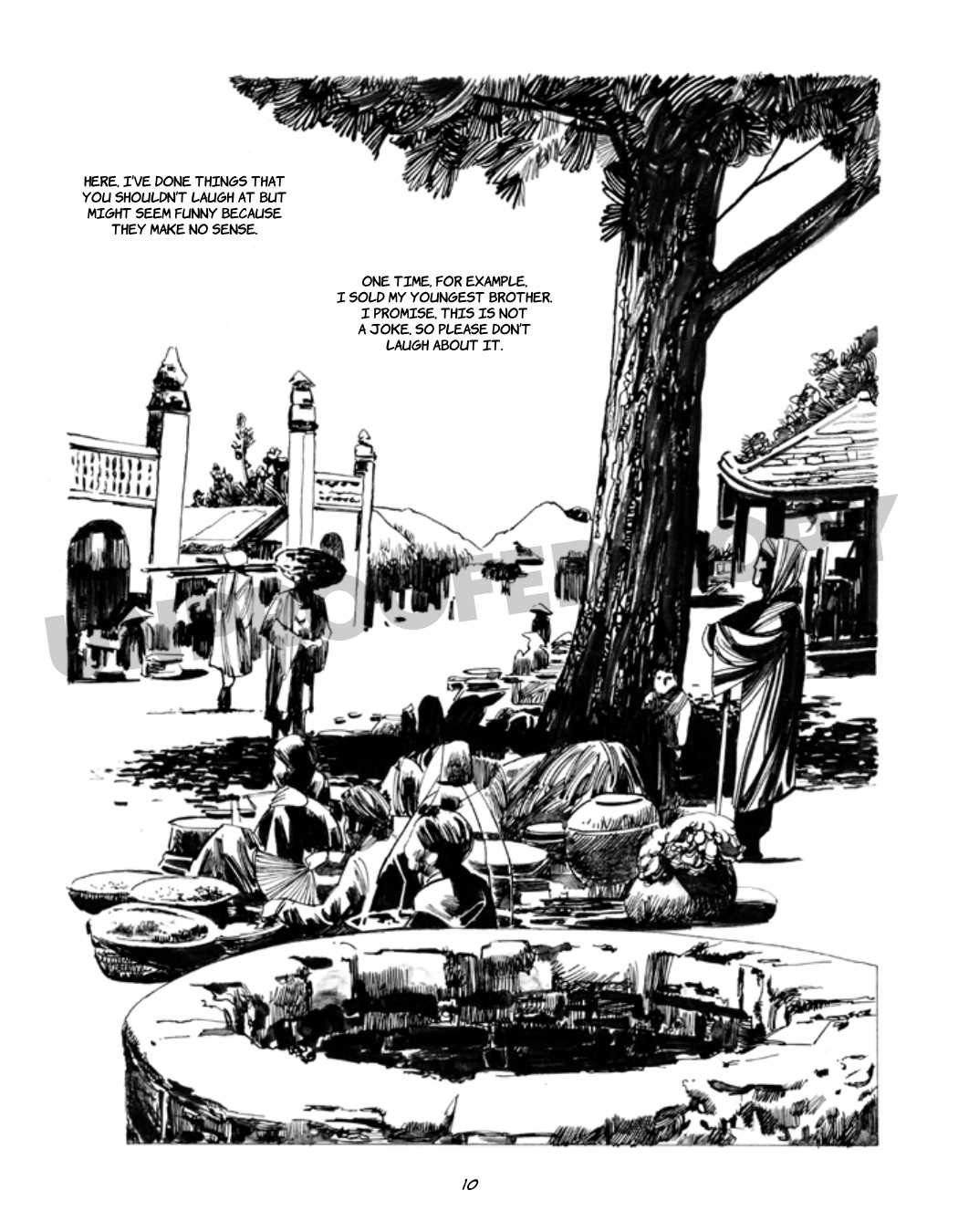
PREVIEWSworld: Did you see a need to tackle this topic for a new generation?
Yasmine: I think, of course, since transmission and successive generations are the threads that hold this whole project together. The past flows into the present and the future. During the writing process, I kept in mind one question that informed the tone and the choice of anecdotes: “What do I want my kids to remember from me, so they can know where they come from and learn where they can go next?”. For the new generation, it can be read as a duty of memory, but I wouldn’t say that Khiêm was meant solely for the younger folks. It was also our intention to speak of the importance for our parents and grandparents to share their stories even if they are difficult to tell.
PREVIEWSworld: The description mentions folklore and how those tales get fragmented with each new generation. Can readers expect folkloric fantasy elements to be part of the book?
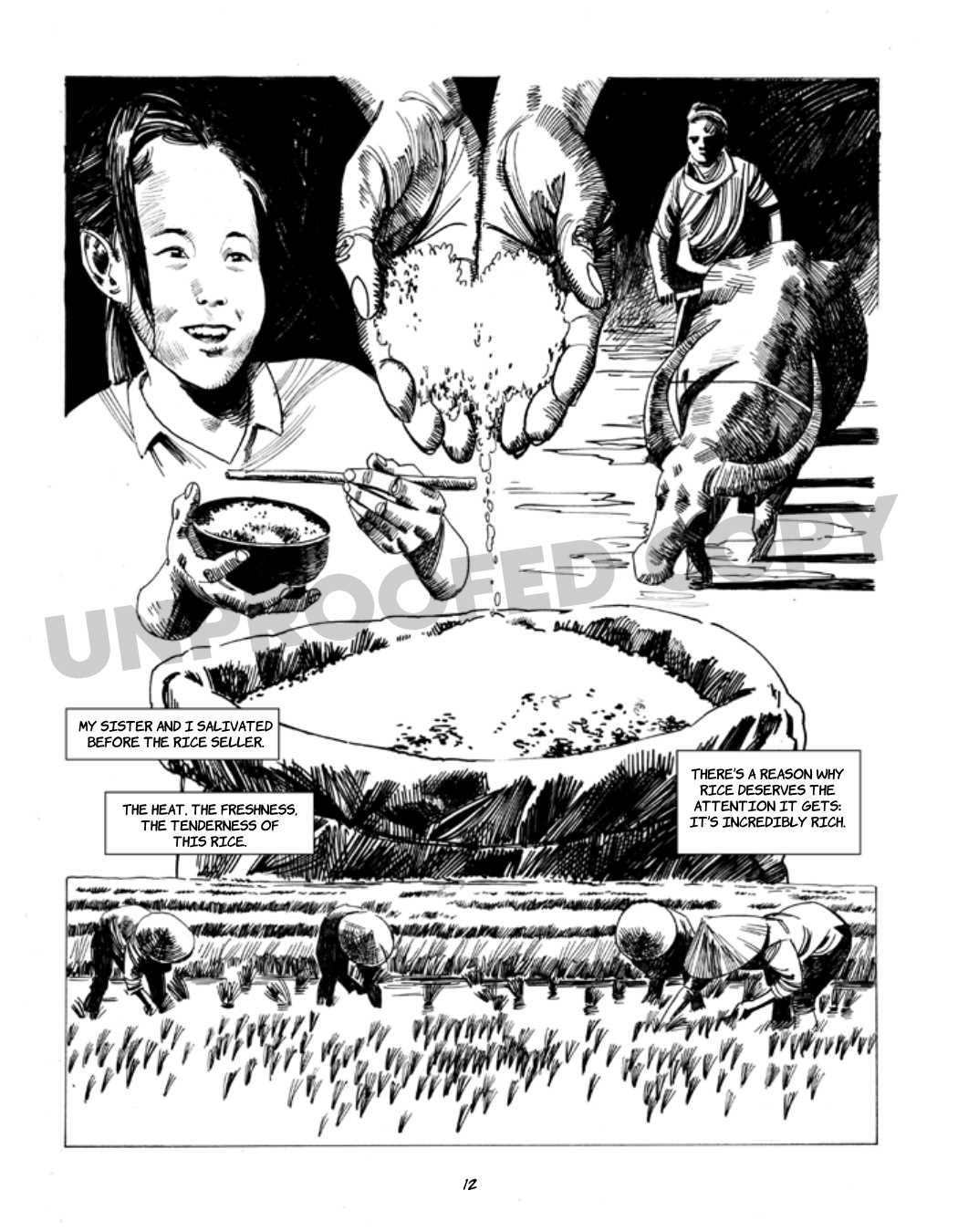
Yasmine: I am not too sure I understand this question. I mean, we do dive into the past of Vietnam in the mid 40’s so of course we witness in the book different traditions and ways of living that contrast with what we know now in Western cultures. Looking at how these traditions were either lost or passed on to us was one very interesting part of our journey.
However, I don’t think there are any folkloric fantasy elements in the book. There is definitely folklore minus the fantasy. We kept very close to the facts in this one and even though the dialogues and the visual representations are somewhat imagined, they flesh out events that actually took place.
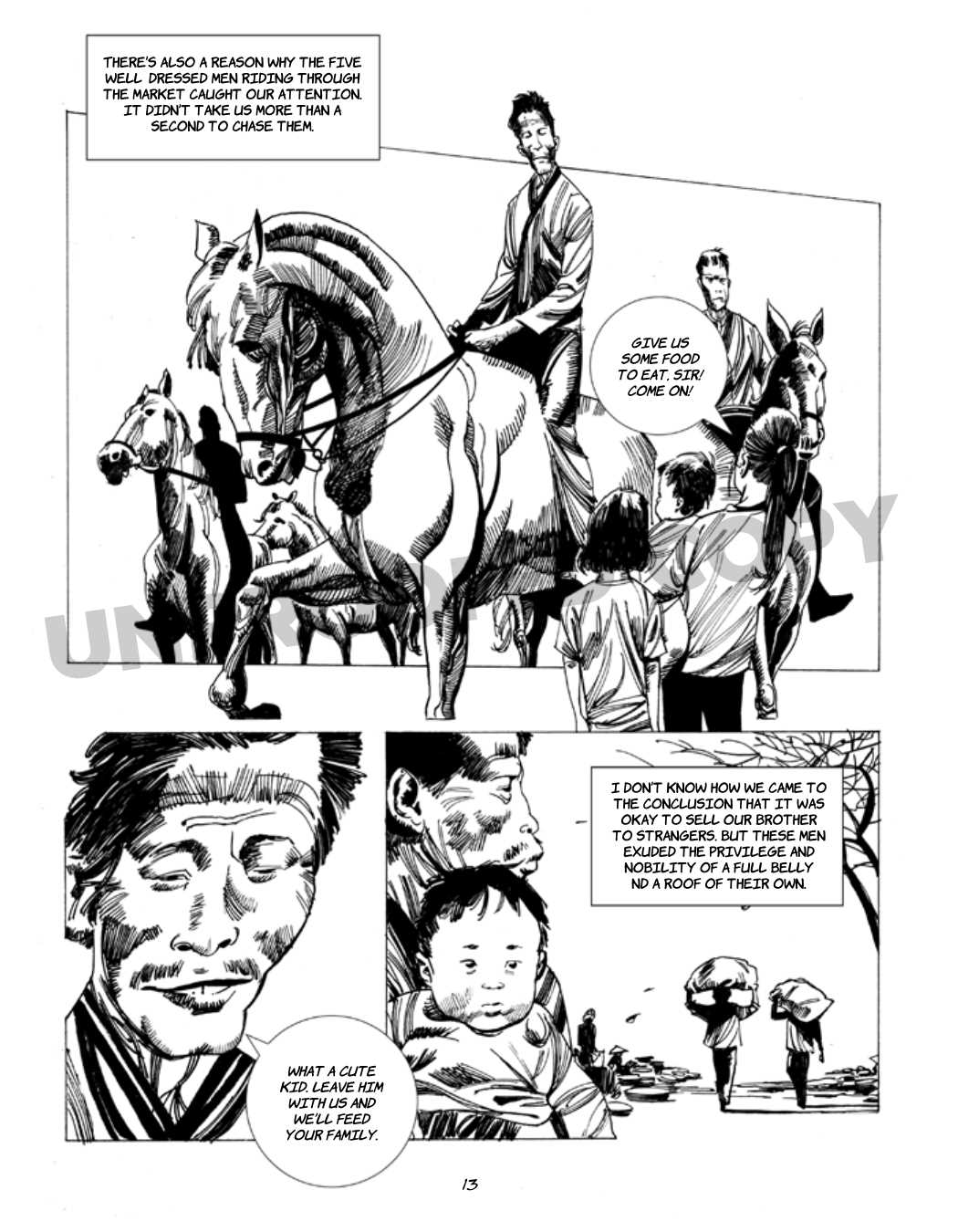
PREVIEWSworld: Was there a particular aspect that was very difficult to navigate?
Yasmine: For me and the writing process, I’d say each chapter had its own difficulty. Writing about my grandmother's life was difficult because of how different things were for her. She came from a different socioeconomic class than me, and religion played an important part in her life. These two things alone made it harder for me to put myself in her shoes.
Writing about my mother's life was difficult for other reasons. We have less distance with it and scars take a long time to heal. Diving deep in this painful past awakens the bruises, and having interviews with my mother about her childhood and her experience as a refugee was not a task to take lightly. It did bring us closer in the end and I was very happy we had the chance to do it. Not easy though.
Writing about my own life was different. It was easy because there was less empathy to practice and research to do. What was difficult was trying to find a voice to follow my grandmother’s and my mother’s. Trying to feel relevant was not that easy after discovering the magnitude of our heritage.
PREVIEWSworld: In terms of audience, who is this book for you think?
Yasmine: I think the book can appeal to a number of people. Anybody who is the product of immigration can find it interesting. Anybody who feels that there are holes in the stories of their ancestors can see in Khiêm a journey they could take upon themselves to initiate. More specifically I think those who have been through refugeehood, adoption, or those who are mixed-race can relate most to this book. But I think anybody who is curious to learn more about the blending of cultures or the history of Vietnam and the boat people are also likely to appreciate Khiêm.
